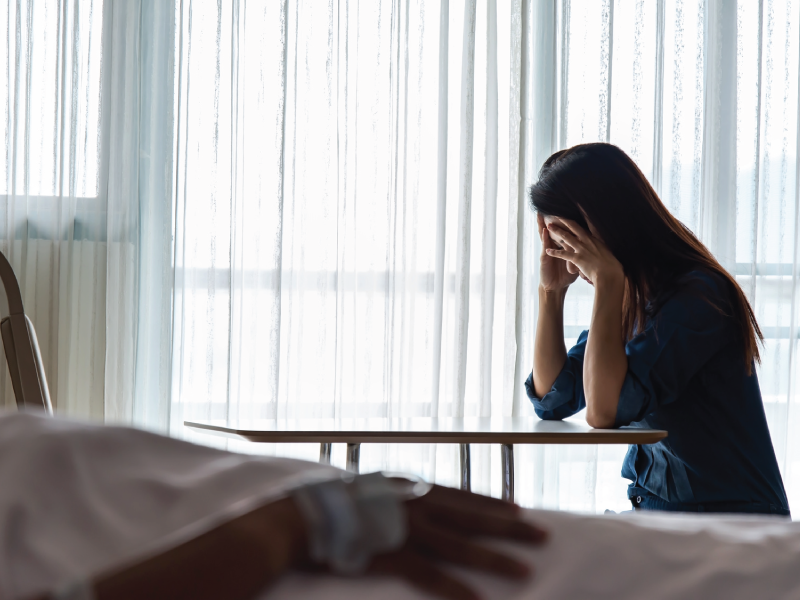September 7, 2017
Coping with Grief and Guilt

“We don’t understand…he was fine just two days ago.” This is a common rejoinder of many families who are faced with the imminent death of a loved one after losing a battle with critical illness. It is indeed very difficult to comprehend how someone can seemingly be fine one moment and then, after getting multi-organ failure from septic shock, can be dying in a matter of hours. Many physician and nurse colleagues have a hard time with this; it is multiplied many times over for those without a background in medicine or science. Yet, sadly, this scenario repeatedly plays itself out in countless ICUs in hospitals all across our country. And, the overwhelming emotion that many of these frightened and distraught family members feel is guilt; tremendous guilt. This is because the healthcare team is now presenting them with a terrible choice: continue aggressive care, which will only delay the inevitable and prolong the suffering of their loved one; or change the goal of care to one of comfort, which will likely lead to the death of their loved one. Thus, the guilt. Many families know – in their heart of hearts – that focusing on comfort is the right decision when the chances of meaningful recovery are slim. Yet, they still feel guilty because they feel that, by “letting them go,” they would be somehow “giving up” on their loved one, or even “killing them” by turning off the pressors and mechanical ventilation. I can see it in their eyes and faces, even if they do not say a word to me. I can see it because I went through the exact same thing with my daughter. My daughter suffered from a crippling genetic disorder that led to cancer, and after six rounds of grueling chemotherapy, she lost her battle with gram negative septic shock and died. She was twelve-years-old. The pain and horror of her loss haunts me every single day of my life, even though it happened more than 8 years ago. Yet, I do not have guilt. I held her limp, febrile body in arms as she breathed her last, but I do not have guilt. Even though her heart stopped on its own, sparing me of the decision to withdraw care, I would not have hesitated for one second to make such a decision. And I would not have had any guilt. I tell this very story to the families of the patients in my ICU who will, most unfortunately, not leave alive. I tell them that they will have pain – lots of pain – for many days, months, and even years to come. I tell them that the burden of grief may be significant, especially if it is a parent losing their child. But I counsel them against carrying a burden of guilt. I tell them, “The burden of grief is enough. Don’t carry the burden of guilt. It is not fair to yourself, and it is not fair for anyone else to do it to you.” With my daughter, we did everything we could, but she still passed away. It hurts, but I am not guilty. The same is true with our patients in our ICUs: we did everything we could, but it didn’t work. Now, we need to make sure that same patient, whose death is inevitable, dies with dignity, comfort, and peace. And we need to help our families avoid the burden of guilt. The same goes for those patients from whom we withhold aggressive therapy from the very beginning, such as a frail, elderly patient who already has so many medical problems that aggressive care will only bring about suffering and torture. If, after discussing with the healthcare team, the decision is made to withhold such aggressive care, we need to make sure we tell the family that there is nothing about which they should feel guilty. They are not “killing” their loved one; they are, rather, making sure that their loved one is comfortable and is not tortured all the way to death. Guilt, like denial, is a very powerful emotion. And, it is frequently the enemy of compassionate care when aggressive care only causes further pain and suffering. As healers invested in the well-being of not only our patients, but their families as well, we need to make sure that grieving families do not suffer from guilt. While it is sad to see our patients die, it is nonetheless true that they will soon be at peace. The families, however, will be left to live on afterwards. We need to tell them, “The burden of grief will be enough. Do not carry the burden of guilt.“
